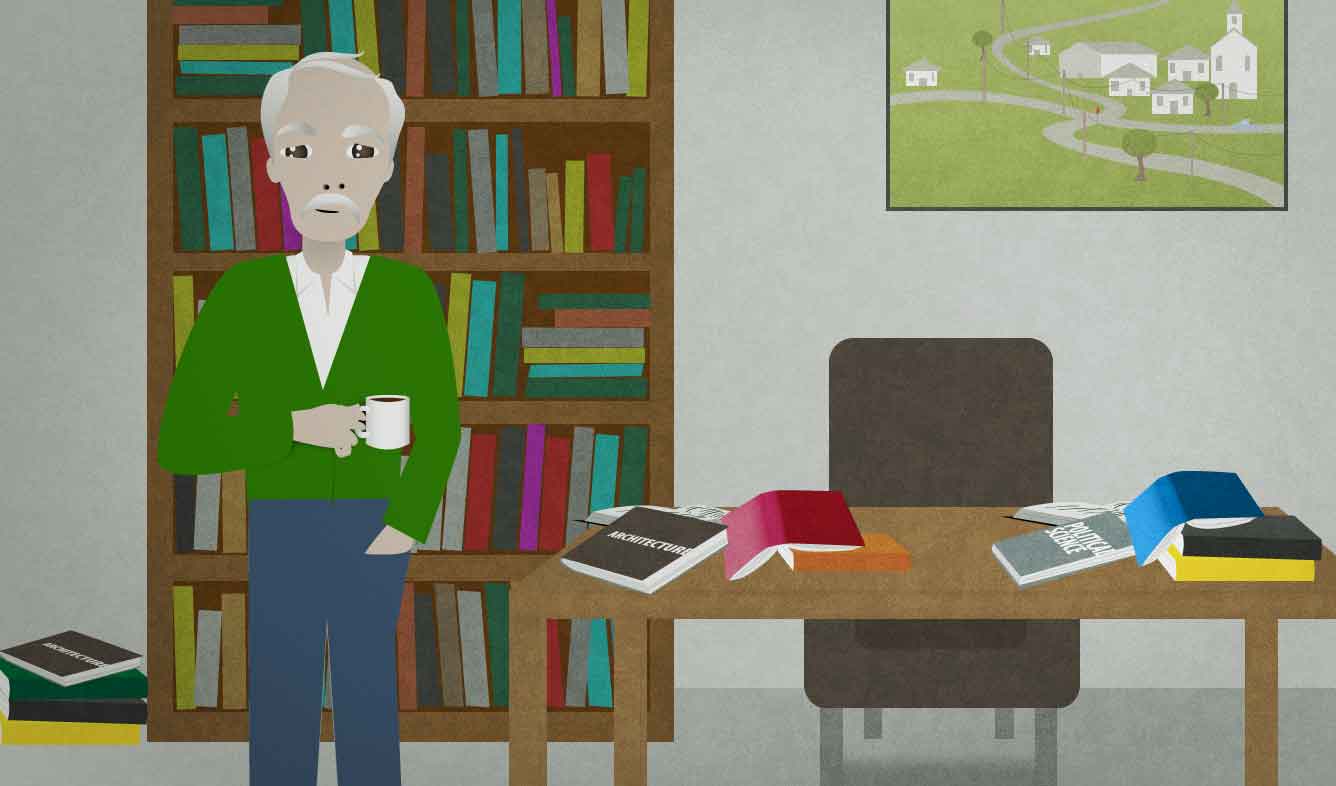“When you go in his office, there are books scattered all around.”
You've visited the office of one of your college professors. You say this, describing what his office is like to another student who's never been in there.
When you go in his office, there are books scattered all around.
Want Video and Sound? Follow us on YouTube

When you go in (somewhere), (description)
This sentence is incorrect according to the traditional rules of formal English grammar. It's incorrect because the subject of the introductory clause ("you") doesn't match the subject of the main sentence ("books"). This mistake is called a "dangling modifier". To correct a dangling modifier, the subject of both should match:
When you go in his office, you see that there are books scattered all around.
However, the great majority of English speakers don't know what dangling modifiers are, or that they are wrong. So it's actually very common to find sentences like these in both spoken and written English.
There is/are (something)(somewhere)
It's common to use "there is ___" or "there are ___" when you're describing a scene or situation:
When you go in his office, there are books scattered all around.
You could also describe a scene this way:
When you go in his office, books are scattered all around.
But that's not as common, because it doesn't communicate the sense that you're giving a description. It sounds more like you're stating a fact. "Facts" are pieces of information like this:
Math textbooks cost a lot of money.
But a "description" has a slightly different feeling. It kind of invites the listener to imagine that they are in the situation you're describing:
There was a math textbook at the campus bookstore that cost a hundred and ninety dollars!
So when you're describing a scene, it's more common to use "There is", "There are", "There were", etc.:
There were books scattered all over.
(things) are scattered all (somewhere)
When things are "scattered", it means that they are located randomly around a location. They're not straight, grouped together, or in order. Imagine a stack of cards which have been dropped on the floor:
The cards were scattered all over the floor.
"Scattered all ___" is completed by a variety of different words, depending on what location the things are scattered in:
There was trash scattered all along the side of the road.
Mr. Preston is planning on visiting several schools scattered throughout the state.
Soda bottles were scattered around the room.
My photo collection is scattered across three or four different computers.
As you can see, sometimes "all" comes after "scattered" but it doesn't always need to.
